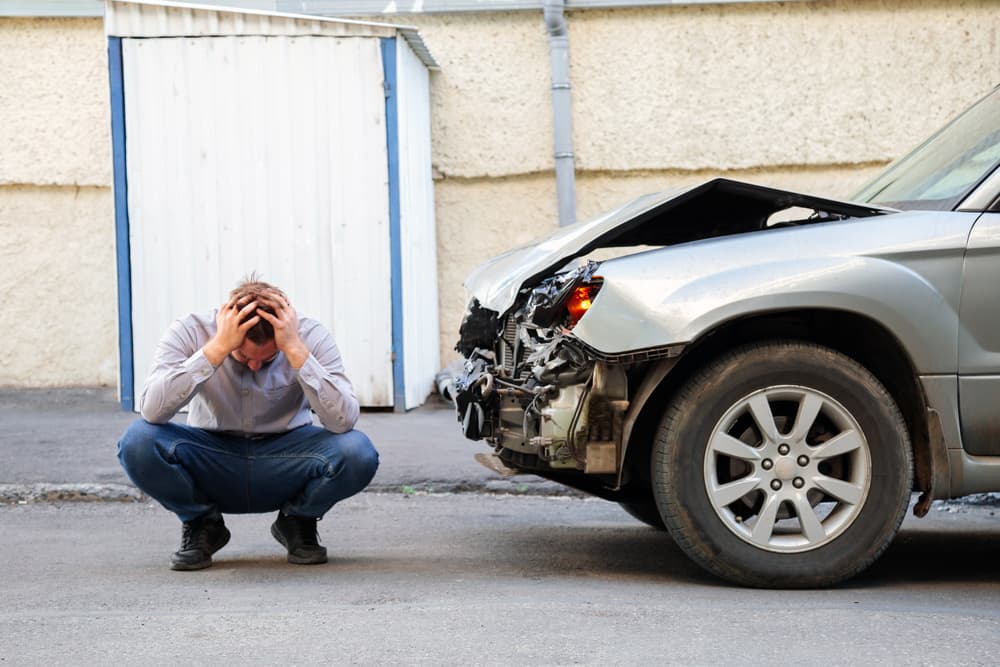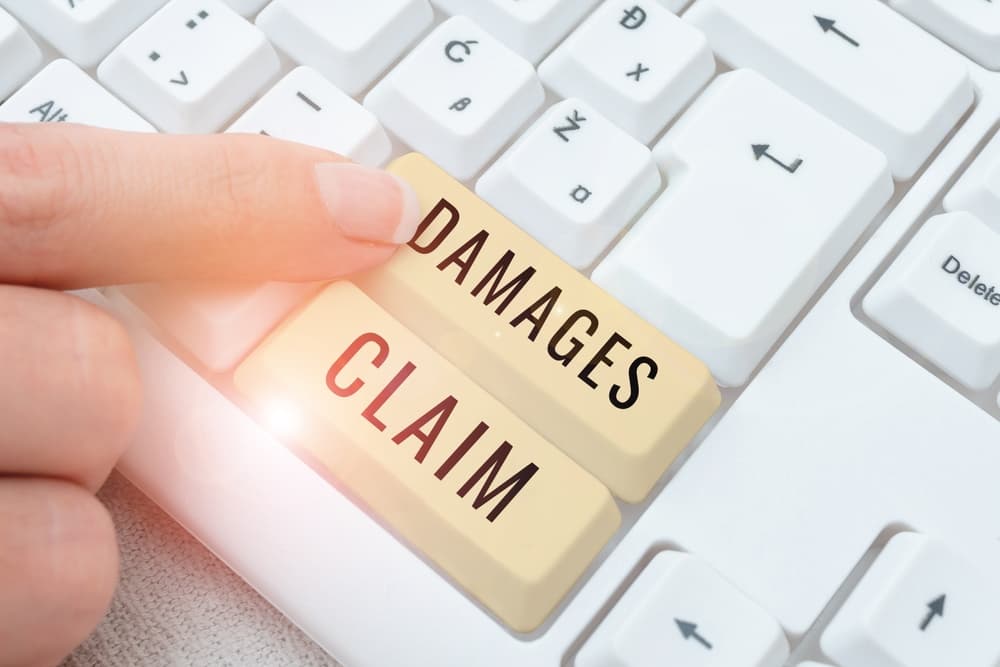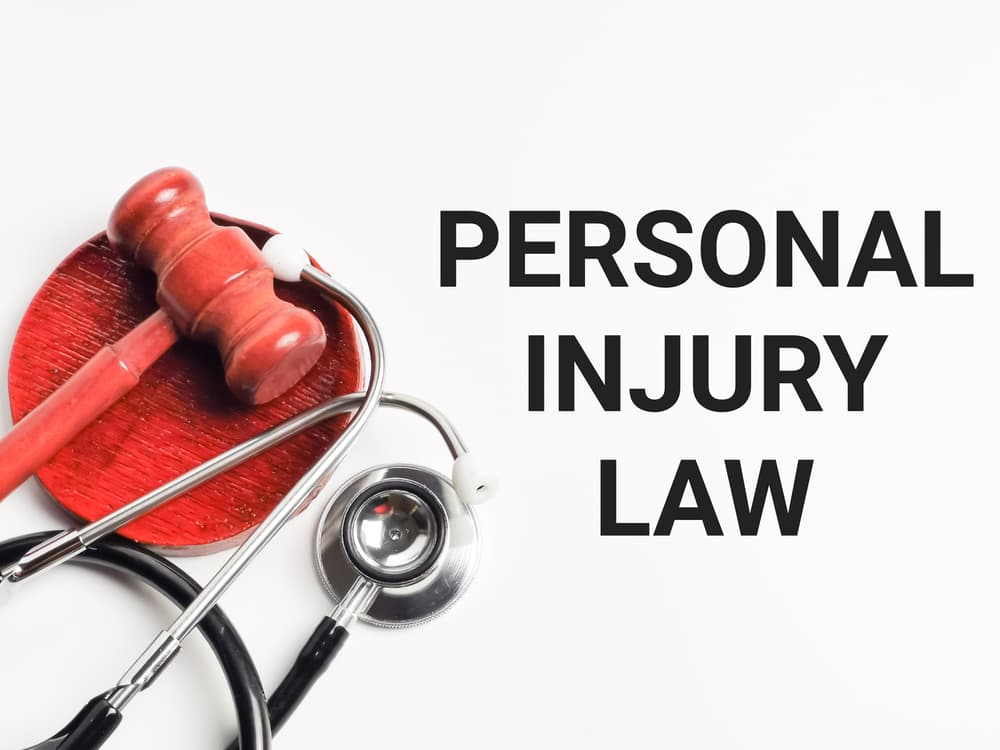First-time settlement offers from insurance companies in personal injury cases are often low because they aim to minimize their financial liability as much as possible. Insurance companies may initially offer a small amount in the hope that the injured party will accept it without fully understanding the extent of their injuries and the potential long-term costs. In addition, settling quickly allows insurance companies to close the case swiftly and avoid the possibility of higher payouts later.
Personal injury claimants should always consult legal professionals who can assess the true value of their claim and negotiate for fair compensation. A skilled personal injury attorney can evaluate your claim or lawsuit, including how much compensation you may be eligible to receive, and will handle all negotiations for you. Your attorney can also threaten the insurance company with litigation if they refuse to compensate you fairly for your accident-related losses.
Common Accidents and Personal Injuries
Negligence on the part of others can lead to various occurrences and injuries, spanning from motor vehicle collisions to wrongful death. These incidents can profoundly affect individuals and families, often resulting in physical, emotional, and financial hardships.

Motor vehicle collisions are among the most common occurrences resulting from negligence. Whether due to reckless driving, distracted behavior, or impaired judgment, these accidents can cause severe injuries such as whiplash, broken bones, traumatic brain injuries, and even fatalities. Pedestrians are particularly vulnerable, facing the risk of being struck by vehicles when crossing streets or walking along roadways.
Defective products pose another significant risk, potentially causing harm to consumers. From faulty automobile parts to malfunctioning household appliances, defective products can lead to injuries ranging from minor cuts and bruises to severe burns, electrocution, or poisoning.
Dog bites are another prevalent form of injury resulting from negligence, often due to irresponsible pet ownership or inadequate restraint. While some bites may cause minor injuries, others can lead to deep wounds, nerve damage, and infections, particularly if the dog is not vaccinated against diseases such as rabies.
Premises accidents encompass a broad range of incidents occurring on someone else’s property due to negligence. Slip-and-fall accidents are common examples, often resulting from wet floors, uneven surfaces, or inadequate lighting. These accidents can cause injuries such as sprains, fractures, and head trauma, leading to medical expenses and lost income.
Wrongful death is perhaps the most devastating consequence of negligence, occurring when an individual’s actions or negligence directly result in someone else’s death. This can involve fatal motor vehicle accidents, medical malpractice, or other forms of negligence leading to fatal injuries.
In each of these scenarios, individuals and families may suffer physical injuries, emotional trauma, and financial burdens. Medical bills, rehabilitation costs, lost income, and emotional distress can all take a significant toll on those the negligence affects. Seeking legal recourse through personal injury claims or wrongful death lawsuits may provide compensation for these losses and hold negligent parties accountable for their actions.
What Do I Need to Prove to Recover Compensation in a Personal Injury Matter?
Accident victims seeking compensation in a personal injury matter must establish several key elements to prove their case and recover damages. These elements typically include:

- Duty of Care — The victim must demonstrate that the party responsible for their injuries owed them a duty of care. For example, in a car accident case, drivers have a duty to drive safely and obey traffic laws.
- Breach of Duty — The victim must show that the responsible party breached the duty of care owed to them. This may involve actions such as reckless driving, failure to maintain a safe premises, or manufacturing and selling defective products.
- Causation — There must be a direct link between the accused’s (defendant’s) breach of duty and the victim’s injuries. The victim must prove that the defendant’s actions or negligence directly caused their harm.
- Damages — The victim must provide evidence of the damages they suffered as a result of the accident. This can include medical bills, lost income, property damage, pain and suffering, and other financial and non-financial losses.
To prove these elements, accident victims often rely on various forms of evidence, including:
- Witness Testimony — Statements from eyewitnesses who observed the accident can corroborate the victim’s account of events and establish liability.
- Medical Records — Documentation of the victim’s injuries, treatment, and prognosis can provide concrete evidence of the extent of their harm and the associated medical expenses.
- Expert Opinions — Testimony from medical experts, accident reconstruction specialists, or other professionals can help clarify complex issues and establish causation.
- Photographic Evidence — Photographs of the accident scene, property damage, and injuries can provide visual documentation to support the victim’s claims.
- Documentation — Any relevant documents, such as police reports, accident reports, and correspondence with insurance companies, can strengthen the victim’s case.
Types of Recoverable Compensation in a Personal Injury Case
In a personal injury case, victims may be entitled to various types of compensation to help alleviate the financial and emotional burdens that their injuries have caused. These types of compensation typically fall into two main categories: economic and non-economic damages.
Economic Damages

These damages are tangible, quantifiable losses that result from the accident and the victim’s injuries. They may include:
- Medical Expenses—Past, current, and future medical bills related to treating injuries sustained in the accident are compensable. These can include hospital stays, surgeries, medications, rehabilitation, and therapy costs.
- Lost Income — Victims may also receive compensation for earnings lost due to missed work while recovering from injuries, including the loss of future earning capacity if their injuries result in long-term disabilities or limitations that affect their ability to work.
- Property Damage — The repair or replacement of damaged property resulting from the accident, such as vehicles, clothing, or personal belongings, is another compensable damage.
- Other Financial Losses — Accident victims may also pursue compensation for any other out-of-pocket expenses incurred due to the accident, such as transportation costs for medical appointments or home modifications to accommodate disabilities.
Non-economic Damages
These damages are more subjective and relate to the pain, suffering, and emotional distress the victim experienced due to their injuries. They may include:
- Pain and Suffering — Victims may seek compensation for physical pain, discomfort, and inconvenience endured due to the accident and subsequent injuries. This can encompass both short-term and long-term pain and suffering.
- Emotional Distress — The psychological effects of the accident, such as anxiety, depression, PTSD, or loss of enjoyment of life, are compensable non-economic damages. This may include compensation for mental anguish, fear, and distress from the accident and resulting injuries.
- Loss of Consortium — Loss of consortium refers to compensation for the negative repercussions of injuries on the victim’s relationships with their spouse or family members, including loss of companionship, affection, and support.

In some cases, victims may also be entitled to punitive damages, which punish the at-fault party for particularly egregious conduct and deter similar behavior in the future.
Recoverable compensation in a personal injury case aims to provide financial stability, support, and justice for victims who have suffered harm due to the negligence or wrongful actions of others. Working with an experienced personal injury lawyer can ensure victims receive fair and appropriate compensation for their injuries and do not accept an inadequate settlement.
How a Skilled Personal Injury Lawyer Can Negotiate with the Insurance Company on Your Behalf
A skilled personal injury lawyer plays a crucial role in negotiating with insurance companies on behalf of accident victims, advocating for fair compensation for their injuries and losses. Here is how they can navigate the negotiation process effectively:
- Case Evaluation — A skilled attorney will thoroughly review the case, gather evidence, assess liability, and calculate the full extent of the victim’s damages. This includes gathering medical records, accident reports, witness statements, and other pertinent information to build a strong case.
- Demand Letter — The lawyer will draft a comprehensive demand letter outlining the victim’s injuries, damages, and the basis for the claim. This letter serves as a formal request for compensation and allows the insurance company to settle the claim before resorting to litigation.
- Negotiation Strategy—A knowledgeable attorney will develop a negotiation strategy tailored to the specifics of the case. This may involve leveraging the case’s strengths, addressing weaknesses, and anticipating the tactics the insurance company may employ.
- Effective Communication — The attorney serves as the primary point of contact with the insurance company, handling all communication on behalf of the victim. This ensures the insurance company does not take advantage of the victim or pressure them into accepting a low settlement offer.
- Counteroffers and Settlement Discussions — Throughout the negotiation process, the lawyer will carefully review any settlement offers from the insurance company, advising the victim on the adequacy of the offer and whether it adequately compensates them for their injuries and losses. They can put counteroffers on the table, striving to increase the offer to a fair settlement amount that fully compensates the victim.
- Litigation Preparation — If negotiations with the insurance company fail to produce a satisfactory settlement, the attorney will prepare to move the case to litigation. This may involve filing a lawsuit and preparing for court proceedings to pursue compensation through a trial.
- Trial Representation—If the case goes to trial, the attorney should provide skilled representation, present evidence, examine witnesses, and advocate for the victim’s rights in court.
A skilled personal injury lawyer can level the playing field when negotiating with insurance companies and helping accident victims secure the compensation they deserve.
Litigation Options in a Personal Injury Case
When a personal injury case fails to settle out of court, there are several available
litigation options that victims can pursue to seek compensation for their injuries and losses. These options include mediation, binding arbitration, or a jury trial.

- Mediation — Mediation is a voluntary and informal process in which a neutral third party, known as a mediator, facilitates communication and negotiation between the parties involved in the dispute. Mediation aims to reach a mutually acceptable settlement agreement without the need for formal litigation. During mediation sessions, both parties can present their arguments, discuss their concerns, and explore potential solutions. If they reach an agreement, it typically becomes a written settlement document that resolves the case.
- Binding Arbitration— Binding arbitration is a more formal alternative to mediation, in which a neutral arbitrator or panel of arbitrators hears arguments and evidence from both parties and renders a binding decision to resolve the dispute. Arbitration may be voluntary or mandatory, depending on the terms of any pre-existing contracts or agreements between the parties. The decision reached through arbitration is final and legally binding, and there is generally limited opportunity for appeal. While arbitration offers a faster and more streamlined resolution compared to traditional litigation, it may not always result in a favorable outcome for the victim.
- Jury Trial — If mediation and arbitration efforts are unsuccessful, the case may proceed to trial before a judge and jury. During a jury trial, both parties can present evidence, call witnesses, and make legal arguments to support their positions. The jury is responsible for determining liability and assessing damages based on the evidence presented at trial. A jury trial allows victims to have a panel of their peers hear their case; they will ultimately decide the outcome. However, jury trials can be time-consuming, costly, and unpredictable, and the outcome is subject to the jury’s discretion.
Each option has its advantages and disadvantages, and the choice of litigation strategy will depend on the case’s specific circumstances and the parties’ preferences.
Speak with an Experienced Personal Injury Attorney About Your Case Today
If you suffered injuries due to a negligent individual or entity, you may be eligible for significant compensation. However, you should always be wary about accepting a first-time settlement offer from the insurance company. Insurers are always trying to downplay your injuries and minimize the financial recovery you deserve.
Do not rely on the insurance company’s opinion of your claim. A knowledgeable personal injury lawyer at the Alexander Law Group, LLP in your area can accurately determine how much your case is worth. They can aggressively negotiate with insurance companies or initiate litigation to pursue the maximum compensation available to you in your case.
Seek a free consultation now.


